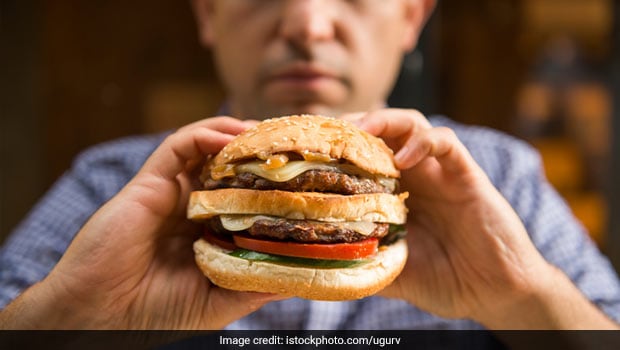Just a few hours after eating dinner, especially when I’m watching my favorite TV show on Netflix, I suddenly have a craving for something sweet – leftover chocolate cake or maybe ice cream. Sometimes the sudden urge to eat becomes so strong that I get up and run to the kitchen and make a cup of cold coffee with ice cream myself or convince my sister to make it. pudding For me. I am sure most of you can relate to my story. But, has it ever happened to you when you’ve had a bad day and when you’re driving home, you come to a café and think about eating 2 or maybe 3 donuts and some chocolate cookies? Perhaps, it wasn’t enough that you ate an entire box of chocolates and drank a large glass of mango shake before going to bed, feeling full and a little sick.
Eating a piece or two of chocolate cake is emotional eating, but eating the entire cake alone is binge eating.
We’ve all heard people complaining that they ate too many high-calorie, high-fat, sugary foods – because they were emotional. It’s very natural and we all do it too, right? Whenever we feel sad or have a crappy day at work, we balance it out by eating a lot of food, because it makes us feel better about the situation. However, there is a huge difference between emotional eating or binge eating. Eating a piece or two of chocolate cake is emotional eating, but eating the entire cake alone is binge eating. Having said that, we are going to talk about binge eating and emotional eating which may sound similar but are two different things.
What is emotional eating?
Emotional eating, also known as comfort eating or stress eating, occurs when you feel hungry due to emotional trauma. You eat a reasonable amount of food, but do not allow yourself to consume other foods in excess because you stick to the same diet. Eating until you feel sick is not emotional eating. According to experts, comfort eating is not a disorder or disease; This is known as an imbalance of hormones, which can be managed by distracting yourself in other healthy activities like yoga or meditation.
(Also Read: 5 Foods That Will Help You Detox After Drinking On New Year’s Eve)

Eating until you feel sick is not emotional eating.
What is overeating?
Unlike emotional or stress eating, binge eating is usually planned. According to experts, overeating is a disorder known as binge eating disorder (BED), and it has some common symptoms such as eating even when not hungry, constantly feeling guilty about eating, and weight loss. To do regular dieting. A person who indulges in excessive eating consumes excessive calories without paying any attention to hunger. This condition arises because mental permission is given to eat whatever is available in unlimited quantities.
(Also read: 5 ways to avoid overeating at night!)

A person who indulges in excessive eating consumes excessive calories without paying any attention to hunger.
precautionary measures
Emotional eating is not a disease or a disorder, while binge eating is a disease and requires medical attention. The best way to control the situation is:
- Change the environment, which means zero access to tempting foods. Remove yourself from environments that are typically highly intoxicating.
- Before it turns ugly, visit a doctor and take corrective measures.
There are situations in which we fail to understand that our body and mind are going through intense hardship. Therefore we need to keep an eye on our lifestyle and follow healthy eating habits.







